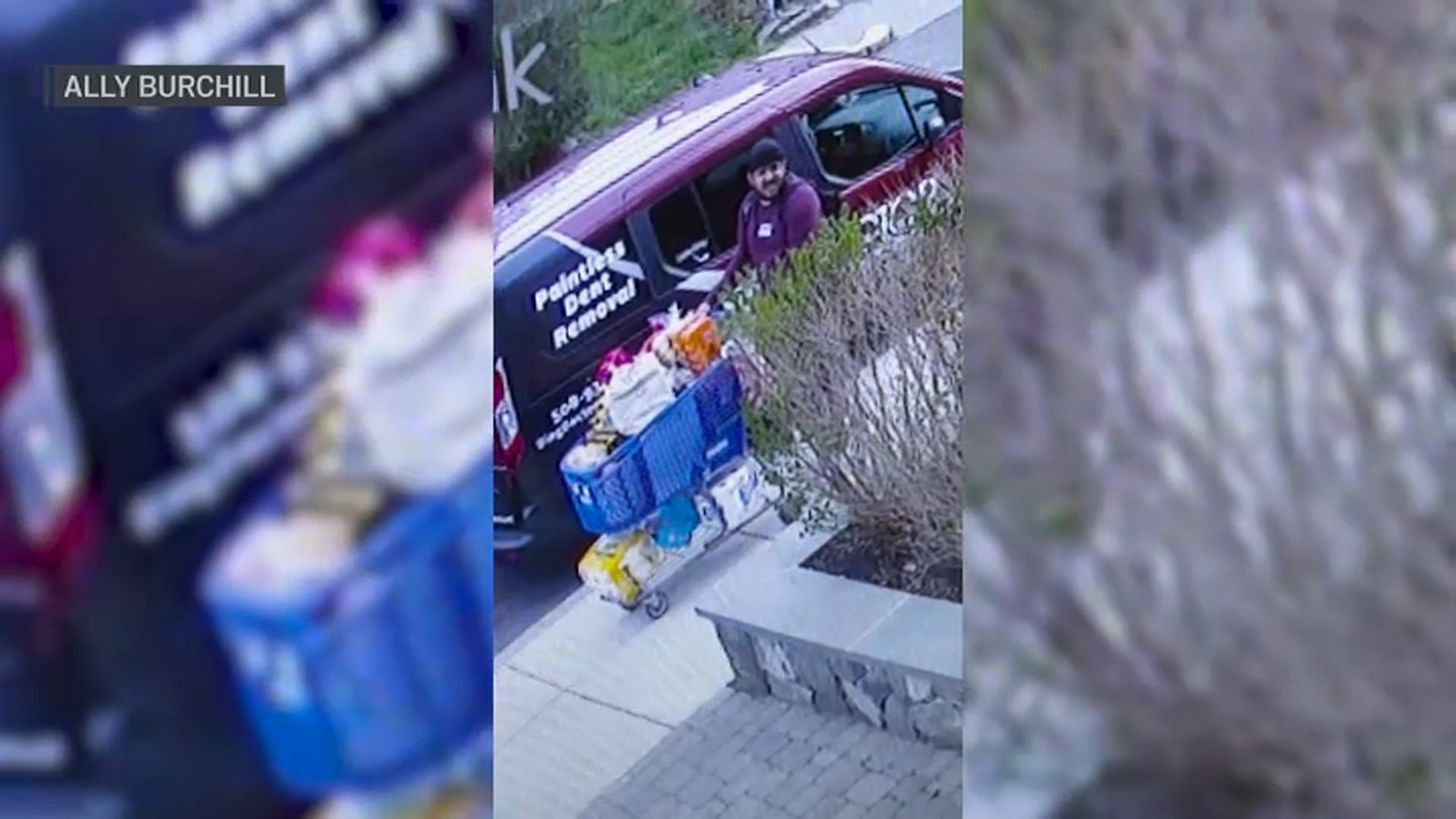If you've ever wanted to know more about your furry family member and where they came from, a dog DNA testing kit could help.
When Amanda Olafsoon of Massachusetts adopted her dog Luna, she knew that the pooch was a mix of Australian Cattle Dog and a small terrier, but felt that her "unique" looking dog could have other breeds in her bloodline.
"We had never seen a dog that looked like her and we wanted to see what she was made of," Olafsoon said.
Using Wisdom Panel’s canine breed detection kit, Olafsoon collected Luna and her other dog Roxie’s DNA with a cheek swab and mailed it in for testing. The Canine DNA Test cost about $75 each at the time and she received the results a few weeks later.
"We knew [Luna] had the Cattle Dog coat, and we knew she had some small terrier in her, but we also learned other breeds that she was mixed with," Olafsoon said. "So, she also has some Lab and mini poodle, which totally surprised us."
Little Roxie turned out to be a mix of some unexpected breeds as well. Her DNA tests listed Cattle Dog, Treeing Walker Coonhound and Chihuahua.
"Treeing Walker Coonhounds are 70 pound, but it’s the Chihuahua in her that’s making her small," Olafsoon said.
Local
In-depth news coverage of the Greater Boston Area.
Wisdom Panel also sells a dual canine breed plus disease detection kit for about $149.99.
Another canine DNA testing company, Boston-based Embark Veterinary, has provided tens of thousands of dog owners with their pets genetic makeup. The company’s kit tests for canine breed, genetic disease risks as well as genetic ancestry.
"We can tell you really what your dog is down to a T," said Ashley Troutman of Embark Veterinary. "We can tell you how big your dog is going to get, and we also do trait tests, like shedding for example, if you don’t want a house full of fur, you would probably be intrigued by the result for that test."
Pet owners can buy the $199 kit, swab their dog’s cheeks to collect the DNA sample and mail it in. Embark said it uses over 200,000 genetic markers to determine a dog's family tree, and runs more than 175 genetic health and trait tests on the pet.
"We can tell you if a dog is going to have something pop up later in life, and you may be able to prevent it," Troutman added.
Genetic DNA testing for dogs are gaining popularity, with some people hosting breed reveal parties for their canine companions.
But as more and more companies offer tests that assess the risk for genetic diseases, experts warn that consumers could end up with an inaccurate interpretation of the test results, and false information about their pets likelihood to develop disease.
"I think that any results you get you need to talk to your veterinarian about, as well as contact the company, and make sure that you understand what these results mean, and the impact it may or may not have on your dog," said Dr. Jerold Bell, adjunct professor of clinical genetics at Tufts University’s Cummings School of Veterinary Medicine. "Therefore, do your homework. It’s not just a black and white answer."
Pet owners like Olafsoon, however, said she thinks the genetic lineage results are pretty “spot on,” even though Luna and Roxie are smaller than their DNA reports predicted they would be.
"You don’t know all the things they are going to do based on the DNA tests, but you can see what breeds they are made of, and associate that with the things they do around the house, and that is really fun," Olafsoon said.
Three Boston-based canine genetic experts co-authored a paper published last month in the science journal Nature calling for quality standards for how tests are performed and shared. They also advocate for establishment of pet genetic counselors who can help owners interpret results.



